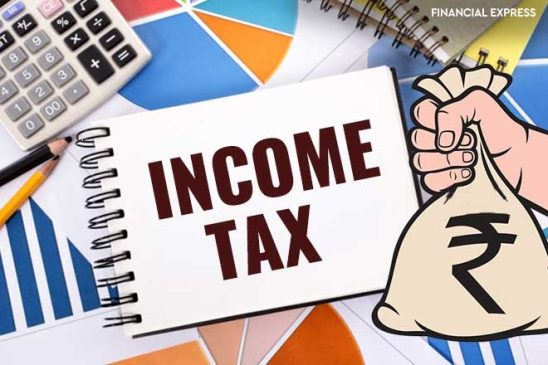Fixed Deposit (FD) can play a crucial role in investors’ portfolios, by enabling you to control equity risk, generate income post-retirement or attain a targeted status in your pension plan. (Shutterstock)
Interest earned from bank fixed deposits is fully taxable for individuals, while senior citizens can claim a deduction of up to ₹50,000 against the interest earned on savings and fixed deposit interest
Interest earned on bank fixed deposits (FDs) is fully taxable. On several occasions, taxpayers make a mistake in the way they report the interest income leading to many receiving notices from the tax department. Recently, many taxpayers got messages and mails from the tax department regarding a mismatch in the interest income data available with the tax department and what was shown in the income tax return (ITR) filed by taxpayers.
Let’s understand the rules regarding the taxation of FD interest and how you should show interest in your ITR to avoid any notice from the tax department.
Interest earned from bank fixed deposits is fully taxable for individuals, while senior citizens can claim a deduction of up to ₹50,000 against the interest earned on savings and fixed deposit interest. Senior citizens claiming deduction, have to show it in the income tax return (ITR). The interest income has to be shown under the head “Income from other sources” and a deduction has to be claimed under Section 80TTB by senior citizens.
However, the depositor has the option to show the interest income on the year of accrual as well as the year of receipt of interest in the ITR.
Tax experts believe that it is always advisable to show the FD interest in the year of accrual despite the fact it is not received.
“It would be recommended that the investor offer interest accrued to tax on a yearly basis. This is mainly because, the investor might fall in a low-income tax bracket and consequently the yearly interest accrued would also be subjected to tax at a lower tax rate. Also, since the bank would deduct TDS on the interest accrued every year and which would be reflected in Form 26AS in such year, this may also avoid any inconsistency between the interest offered to tax every year and TDS deducted on such interest,” said Suresh Surana, founder, RSM India.
“However, on the other hand, if the investor provides the entire amount of interest to tax in the year of receipt, this may push the investor towards the higher income tax bracket and he may be subjected to tax on such interest income on a higher tax rate,” said Surana.
Banks are required to deduct TDS at the rate of 10% in case the interest accrued for the year is above a threshold limit. It is ₹50,000 in case of senior citizens and ₹40,000 in case of non-senior citizens.
So, in case interest earned by you during the year is more than the threshold limit the bank will deduct TDS and the same will be reflected on your 26AS. So, there are chances of mismatch between 26AS and ITR.
If the taxpayer still wants to pay the tax on the year of maturity of FD, he or she can carry forward the TDS . “ In such a situation there’s an option in ITR form to mention the year of TDS amount and the TDS credit amount claimed out of that (rest can be carried forward). This should be filled very carefully. Alternatively, if there’s a mismatch of income and TDS and it’s flagged by the Department, then the taxpayer can file an explanation to the Department,” said Sujit Bangar, founder, TaxBuddy.com.
“Such a person who opts for FD interest taxation on receipt basis, should while filing their return for earlier years should in the TDS schedule that such TDS is carried forward. As such, credit for all TDS carried forward would be available in the year of maturity when the interest is offered to tax,” said Surana.
However, if your income is below the exempted limit, you can file Form 15G/H to avoid TDS. Form 15H for senior citizens and 15G is for other than senior citizens.





































